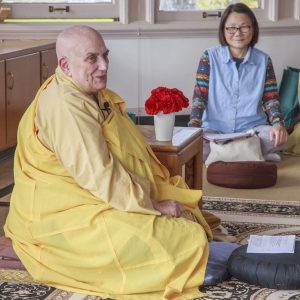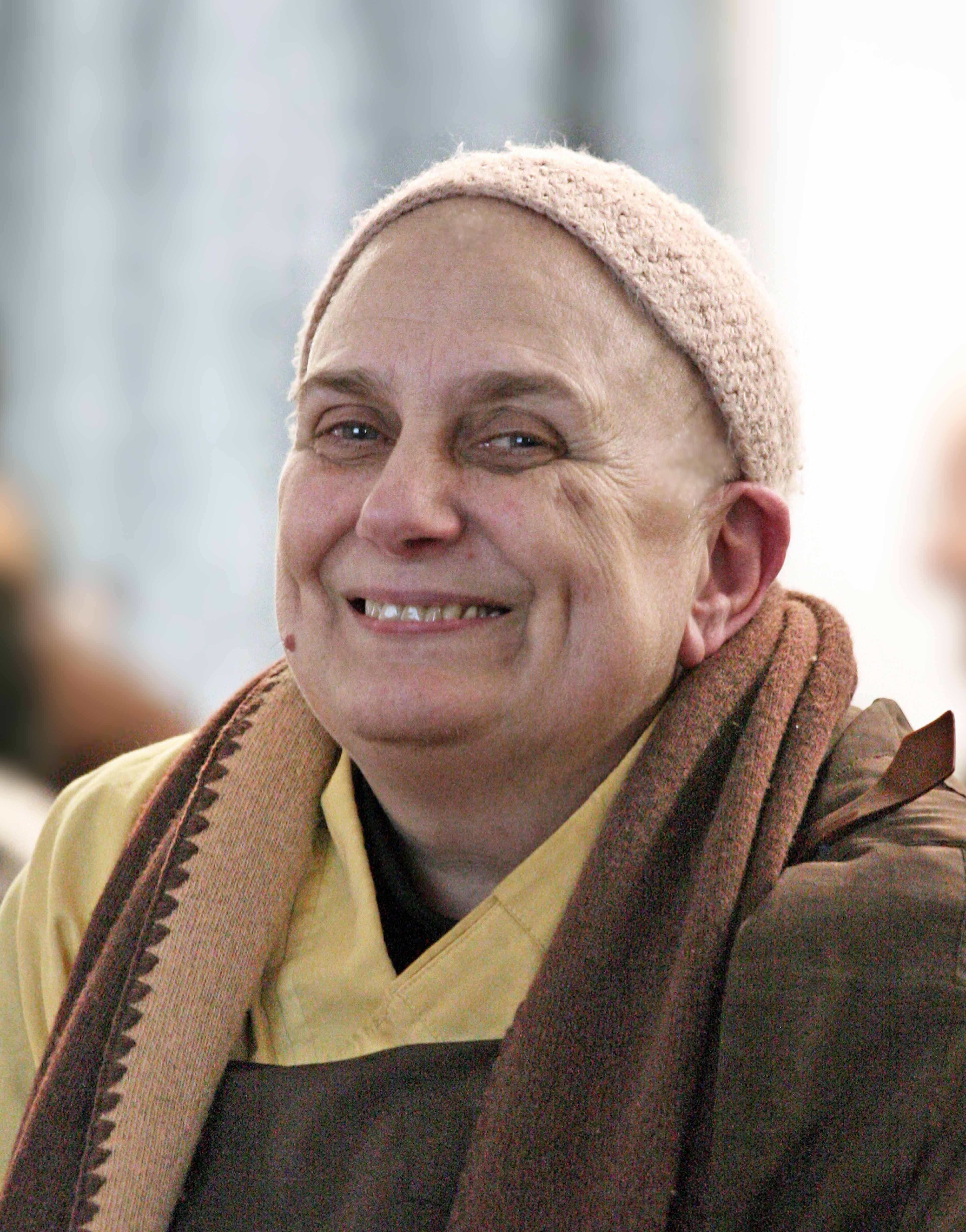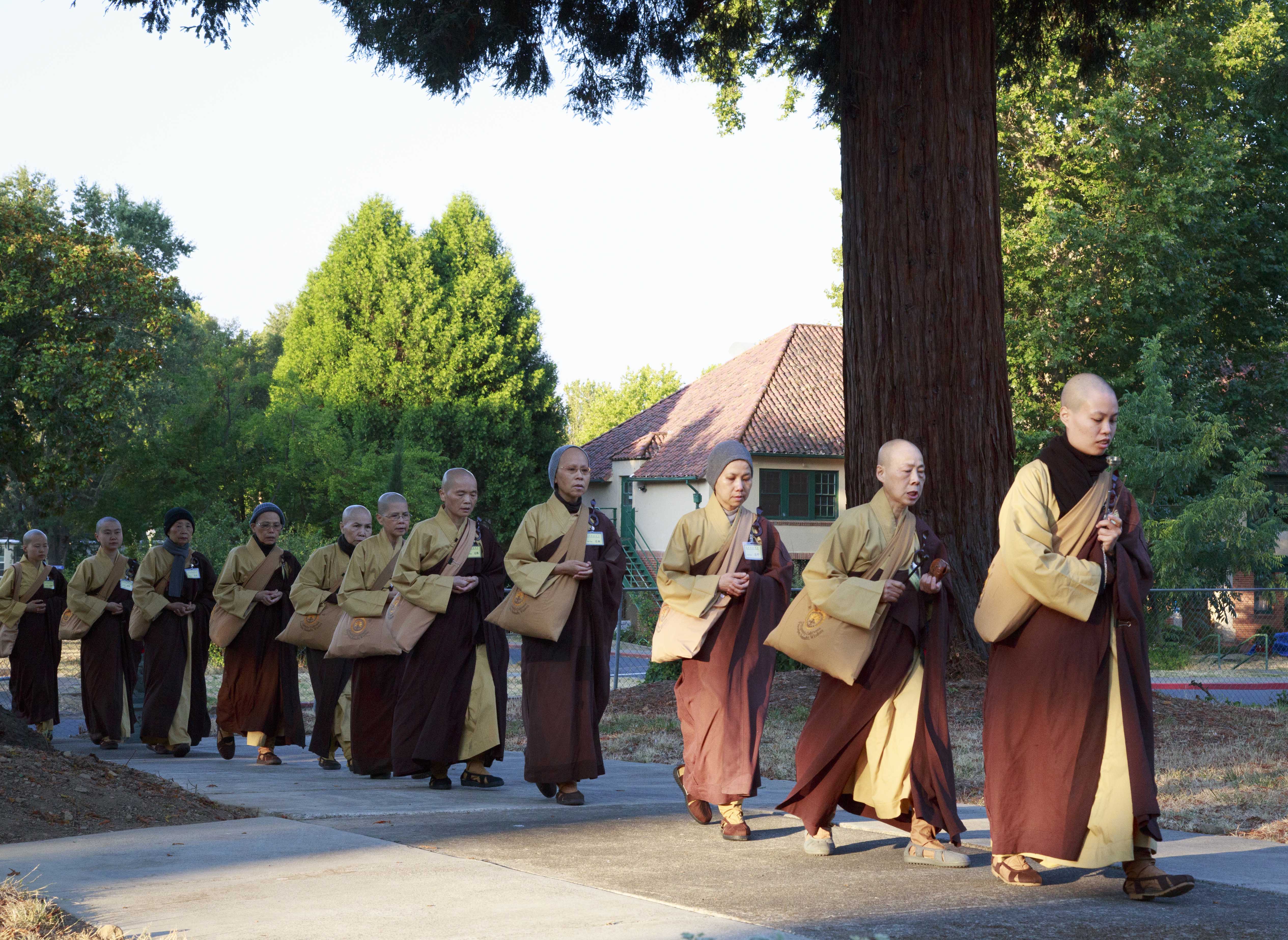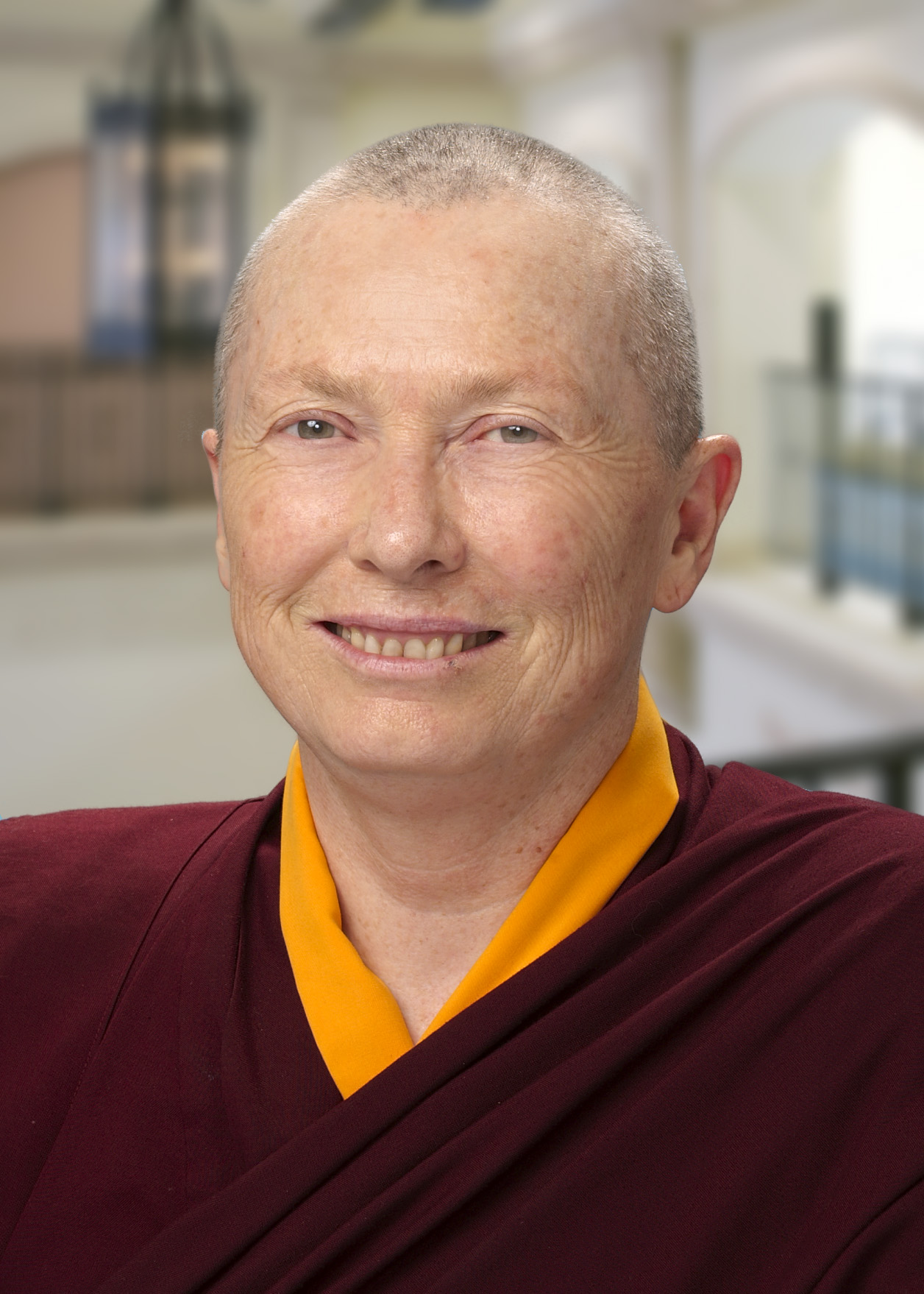In your experience, are there unique challenges (or benefits) to being a woman and a cultivator?
Bhikshuni Heng Chih: In my experience, under the teaching and guidance of Venerable Master Hua, I, as a woman, was given equal opportunity (along with the male participants)…
- to do real-time oral translations of the Master’s lectures,
- to work in Buddhist Text Translation Society as a primary translator, a bilingual reviewer, an English editor, and, eventually, as a certifier of classical Buddhist Sutras and modern-language commentaries,
- to meditate in the formal meditation sessions,
- to serve in various administrative positions
- in the monastic community,
- in the educational institutes founded by the Master
- at branch affiliates of Dharma Realm Buddhist Association (DRBA),
- and on the boards of trustees set up by DRBA and its programs.
- to lecture on Buddhist sutras and teach Buddhism in the educational institutes established by the Master.
In all these cases, I was not aware of any gender-related exceptions. The Master welcomed participation by all his disciples. Young and old, those with more education and less, monastic and lay, male and female, as well as occasional LGBTQ members of the community, were encouraged to contribute their skills and abilities appropriately. The common factors the Master insisted on were ethical and compassionate behavior and maintaining harmony among all.
Are there ways in which Buddhist practice and teachings can help women in particular?
Bhikshuni Heng Chih: Mahayana Buddhist teachings and practices focus on improving ourselves and helping others. The benefits derived from being a student and practitioner of Buddhism are manifold, but I’ve never thought of them as gender-specific.
Male and female cultivators (at least those under Master Hua’s guidance) find that “the sky’s the limit” when it comes to how far we can progress in our practice. It’s up to each of us, and we are given the Six Paramitas to help guide our way. That is, we work to perfect 1) giving, 2) holding precepts, 3) patience, 4) vigor, 5) samadhi, and 6) wisdom. More specifically, the Master gave us Six Guidelines, which are: 1) refraining from contending, 2) refraining from being greedy, 3) refraining from seeking, 4) refraining from pursuing self-benefit, 5) refraining from being selfish, and 6) refraining from not telling the truth.
I have found my choice of monastic life to be the best decision I ever made! As a woman, I have benefited immeasurably from learning how to live harmoniously in our Bhikshuni Sangha, which is an international community. It has not been easy, because we women come from so many national, social, and cultural backgrounds – and most of us think the knowledge we have accumulated in our home- and school- education is “right.” However, as we abide together, we discover that “right” in one culture might not be “right” in another. We have all had to learn how to compromise in order to keep harmony. And keeping harmony is the number one mandate for monastics.
What might you share with women cultivators today?
Bhikshuni Heng Chih: If your conditions bring you to an opportunity to join the monastic Sangha, I urge you not to let that moment go by without giving serious consideration to requesting permission to join the monastic Sangha so that you can become a fully-ordained Buddhist nun.
Having lived my first 25 years as a Christian – searching and questioning – and the subsequent 53 years (and counting) as a Buddhist – stable, content, and finding answers – I am so grateful that I was able to seize the moment when a way opened for me to enter the monastic Sangha.
There is no way for me to describe verbally the “rightness” I feel about that decision; there is no way for me to describe verbally the joy that practice brings, the satisfaction that finding answers gives, or the gratitude I feel to have learned from the Master and to be able to continue that learning through study, lecturing, translating, teaching, and practicing.
If your conditions are such that you have chosen to live with a partner and, perhaps, to raise children, or, to live a lay life independent of partner and children, then I urge you to learn the basic tenets that will guide you in your life as a Buddhist layperson. May you serve as a model by receiving and upholding the lay precepts, so that you inspire others to learn more about Buddhism and to apply the parts they find applicable to their lives – for the betterment of all.



